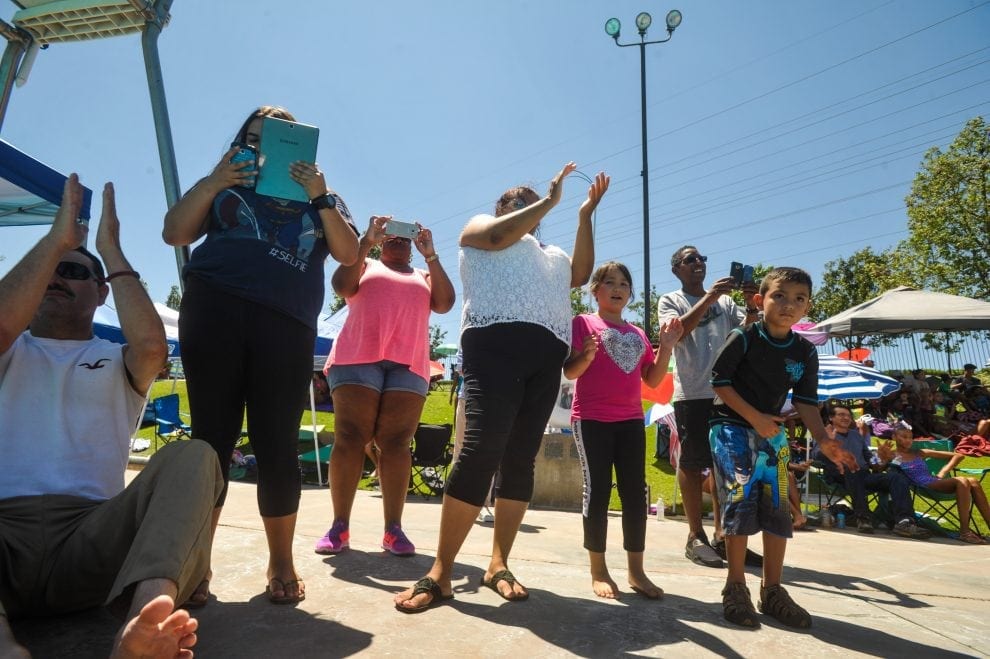While the weather isn’t getting any cooler any time soon, the days are getting shorter, the vacations are winding down, and it’s almost time for the children to head back to school.
Children can often experience anxiety or concern about the return to the classroom — where they trade in their boisterous play time for new learning opportunities.
However, parents can help combat that by keeping their kids engaged through the summer, or even help them with the transition. It’ll also help them avoid what many educators know as the “summer slide” — the tendency for students, to lose some of the achievement gains they made during the previous school year, due to the inactivity.
Local school officials offered a variety of advice to educate kids in one of the best ways possible: have them practice critical thinking and working on skills without necessarily making them feel like it’s a formal learning environment.
As with most things in life, local educators suggest a balance of activity for children.
“I do think that families need some ‘time off,’ if you will,” said Dee Jamison, assistant superintendent of instructional services for the Newhall School District, “but I think it’s also wise to keep track of how much time students are engaged in their video games — a kind of moderation of what’s being done.”
While there are educational tools that some children might enjoy, even some of their favorite video games can be as positive experience that encourages the attitude of a “lifelong learner” that schools are trying to encourage.
“I think it has to do with the discussions, and how we are engaging with our kids,” Jamison said. “(As a child), you could play a video game as an isolated event, or you could have a parent engaged — there is a problem-solving element to the gaming, as well. It makes a difference, in engaging with conversation with them and engaging them in what they’re doing.”

There’s also activities, perhaps outside the usual summer activities, that children could explore while they still have a little more “free time” per se, without the time crunch of class, then after-school sports, then scouts, etc.
“Maybe there’s something the kids would like to do, maybe they could write a persuasive letter,” said Kim Tredick, director of curriculum and instruction for the Sulphur Springs Union School District, who also is an editor for Brain Quest, which seeks to create fun learning materials for a younger audience.
While the library is a great and affordable option, there’s nothing wrong with going to a movie, too, but there are also ways to make that a learning experience, Tredick said.
“Ask them question about movies they’re seeing,” she suggested. “Not just, ‘Did you like the movie?’ But, ‘Would you be friends with that character, and why?’” are some questions to stimulate the dialogue.
Tredick also mentioned summer Accelerated Reading programs that take place at school districts throughout the Santa Clarita Valley, which allow students to work ahead on their reading goals, as opposed to potentially falling behind.
“It’s always a great idea to make up reading lists, do flashcards or math problems, if you have an opportunity to go out, go to museums and the library,” said Lee Morrell, spokesman for the Saugus Union School District. “t’s very much like physical fitness, where 60 minutes a day is recommended — I would think an hour a day of reading or solving math problems would be a great way to make sure your children are ready come the beginning of the school year.”
While it might just be as easy as a thought-provoking conversation, the idea is the intellectual engagement, and to keep the student critically thinking, whether they’re in the classroom, the playground or outside the theater.
“And keeping the thinking over the summer and keeping the conversations going over the summer,” Tredick said, “really keeps children in the mode of the school.”
BREAKOUT BOX
- SUMMER SLUMP
All young people experience learning losses when they do not engage in educational activities during the summer.
- More than half of the achievement gap between lower- and higher-income youth can be explained by unequal access to summer learning opportunities. As a result, low-income youth are less likely to graduate from high school or enter college
- Children lose more than academic knowledge over the summer. Most children—particularly children at high risk of obesity—gain weight more rapidly when they are out of school during summer break
- Parents consistently cite summer as the most difficult time to ensure that their children have productive things to do.
Courtesy of the California PTA











